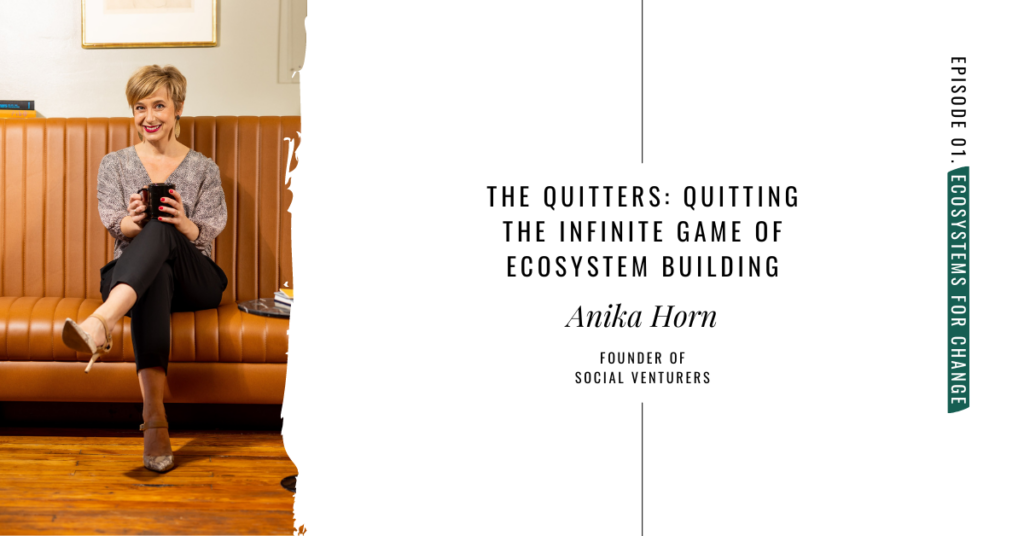In this season of Ecosystems for Change, I’m talking to my guests about their experience with quitting.
As much as I dislike quitting–I really do–I understand it is part of life. We evolve and so do the circumstances, organizations and people around us.
As we uncovered in season two, ecosystems are complex, adaptive systems; they are constantly shifting and changing and as a result, people move in and out of them at different times.
As builders who like to start new things, it’s only logical that everytime we start one thing we technically have to quit something else to create the space for this new thing to flourish and thrive. In season three, we heard first-hand accounts of what happens when we keep piling on, trying to squeeze one more ounce of productivity out of ourselves because we somehow feel like we want to do it all.
I have come to believe that quitting is normal, healthy, and simply part of the natural cycle of progress. And yet, it is still somehow taboo. The idea that quitting somehow is a sign of failure, of suddenly not caring about the cause anymore, means that many of us passionate change makers hang in there longer than we should or want to.
That’s what I want to talk about in Season 5. I’m sitting down with ecosystem builders who stopped playing–either temporarily or for good. I want to find out what led to the depletion of their resources–either internal or external–and if there’s anything we can do to change course and stop that depletion.
What happens when you decide or you’re forced to step away from your life’s work? We’ll get a little closer to an answer in this season.
Click here to listen to this episode on your favorite podcast player!
Listen to the full episode to hear:
- What complex adaptive systems can teach us about quitting
- Why ecosystem building is like an infinite game with shifting rules, tactics, players, and timelines
- Three perspectives on stepping away from the game of ecosystem building
Learn More About Anika Horn:
- Instagram: SocialVenturers
- Newsletter: Sign up for Impact Curator
Resources:
- The Infinite Game, Simon Sinek
- The Infinite Game of Ecosystem Building, Social Venturers
- Bonus Episode: The Ecosystem Builders: Where Are They Now?
- Ep 4.8: Succession Planning: Transferring Social Capital To The Next Generation with Rick Turoczy
- Ep 2.4 – Servant Leadership, Co-writing New Narratives and Burnout in Ecosystem Building with Jeff Bennett
